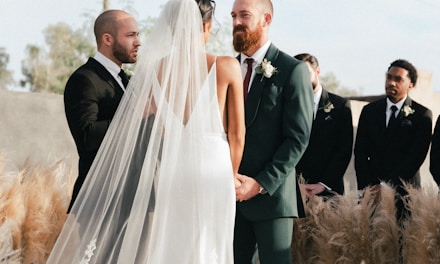The Celebrant Institute is Australia's leading professional celebrant support membership, offering the Certificate IV in Celebrancy, along with mentorship and support from Josh and Sarah.
About The Author
Josh Withers
Josh is a Hobart marriage celebrant who has created thousands of marriage ceremonies in over 20 countries since 2009, based in Tasmania's Huon Valley with his wife Britt and two daughters. In 2016, with Sarah Aird, he co-founded the Celebrant Institute and specialises in the business of celebrancy and the art of present and intimate ceremony.
Related Posts
Your account
Sign in
Subscribe to the monthly email letter
Join the list to receive the monthly email to the best marriage celebrants in Australia with updates on marriage laws, regulations, business developement and growth strategies. See past issues here.





Recent Comments